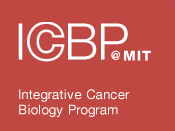| Title | Integrated network analyses for functional genomic studies in cancer. |
| Publication Type | Journal Article |
| Year of Publication | 2013 |
| Authors | Wilson, JL, Hemann, MT, Fraenkel, E, Lauffenburger, DA |
| Journal | Semin Cancer Biol |
| Volume | 23 |
| Issue | 4 |
| Pagination | 213-8 |
| Date Published | 2013 Aug |
| ISSN | 1096-3650 |
| Abstract | RNA-interference (RNAi) studies hold great promise for functional investigation of the significance of genetic variations and mutations, as well as potential synthetic lethalities, for understanding and treatment of cancer, yet technical and conceptual issues currently diminish the potential power of this approach. While numerous research groups are usefully employing this kind of functional genomic methodology to identify molecular mediators of disease severity, response, and resistance to treatment, findings are generally confounded by "off-target" effects. These effects arise from a variety of issues beyond non-specific reagent behavior, such as biological cross-talk and feedback processes so thus can occur even with specific perturbation. Interpreting RNAi results in a network framework instead of merely as individual "hits" or "targets" leverages contributions from all hit/target contributions to pathways via their relationships with other network nodes. This interpretation can ameliorate dependence upon individual reagent performance and increase confidence in biological validation. Here we provide background on RNAi studies in cancer applications, review key challenges with functional genomics, and motivate the use of network models grounded in pathway analyses. |
| DOI | 10.1016/j.semcancer.2013.06.004 |
| Alternate Journal | Semin. Cancer Biol. |
| PubMed ID | 23811269 |
| PubMed Central ID | PMC3844556 |
| Grant List | U01 CA155758 / CA / NCI NIH HHS / United States U01-CA155758 / CA / NCI NIH HHS / United States U54 CA112967 / CA / NCI NIH HHS / United States U54-CA112967 / CA / NCI NIH HHS / United States |
